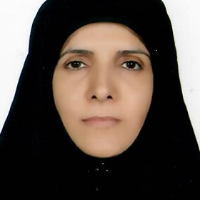The effect of family-centered empowerment model on quality of life and self efficacy of multiple sclerosis patients family care givers
Family is primary source for caring of patients. The caregivers make patients in family with economical، affective and health care support. The needs for caregiver’s family increased with hospital - central care to community - center care. Community center care makes increase of knowledge of the care givers on the patients in house. This study with objective of family - center empowerment model was done on the quality of life and self efficacy of the care - givers of multiple sclerosis patients.
This study is clinical trial with 70 multiple sclerosis patients that enrolled in the multiple sclerosis society of Iran classified in two groups based on random allocation (35 patients care givers case and 35 patients care givers in control group). The eight sessions of educational program based on educational needs of caregivers done for three months and matured with checklist of self reported for applied of programs. After three months of program done measured quality of life and self efficacy with questionnaire in case and control groups. Data analyzed with deductional satisfaction tests.
Results showed no significant difference on the quality of life and self efficacy in two groups of the case and control before intervention based on independent t-test (P≥0. 05) whereas t-test showed significant difference in two groups of case and control after intervention (P=0. 001). Pairs t-test showed significant difference in increased of the quality of life and self efficacy in care givers of case group after three mounths of intervention (P=0. 001) where as t-test showed no significant difference in all above factors in care-givers of control group after three mounts (P≥0. 05).
The care - givers of chronic patients considered high risk tendency for covered disease that tolerates high tension. The interaction such as empowerment based on educational needs for them improves attitudes on the sign of disease changed، behavioral signs and also intervention in low - economic safe and affective method for care - givers of multiple sclerosis patients helps them to manage stress and spiritual tensions and increases quality of life.
- حق عضویت دریافتی صرف حمایت از نشریات عضو و نگهداری، تکمیل و توسعه مگیران میشود.
- پرداخت حق اشتراک و دانلود مقالات اجازه بازنشر آن در سایر رسانههای چاپی و دیجیتال را به کاربر نمیدهد.


